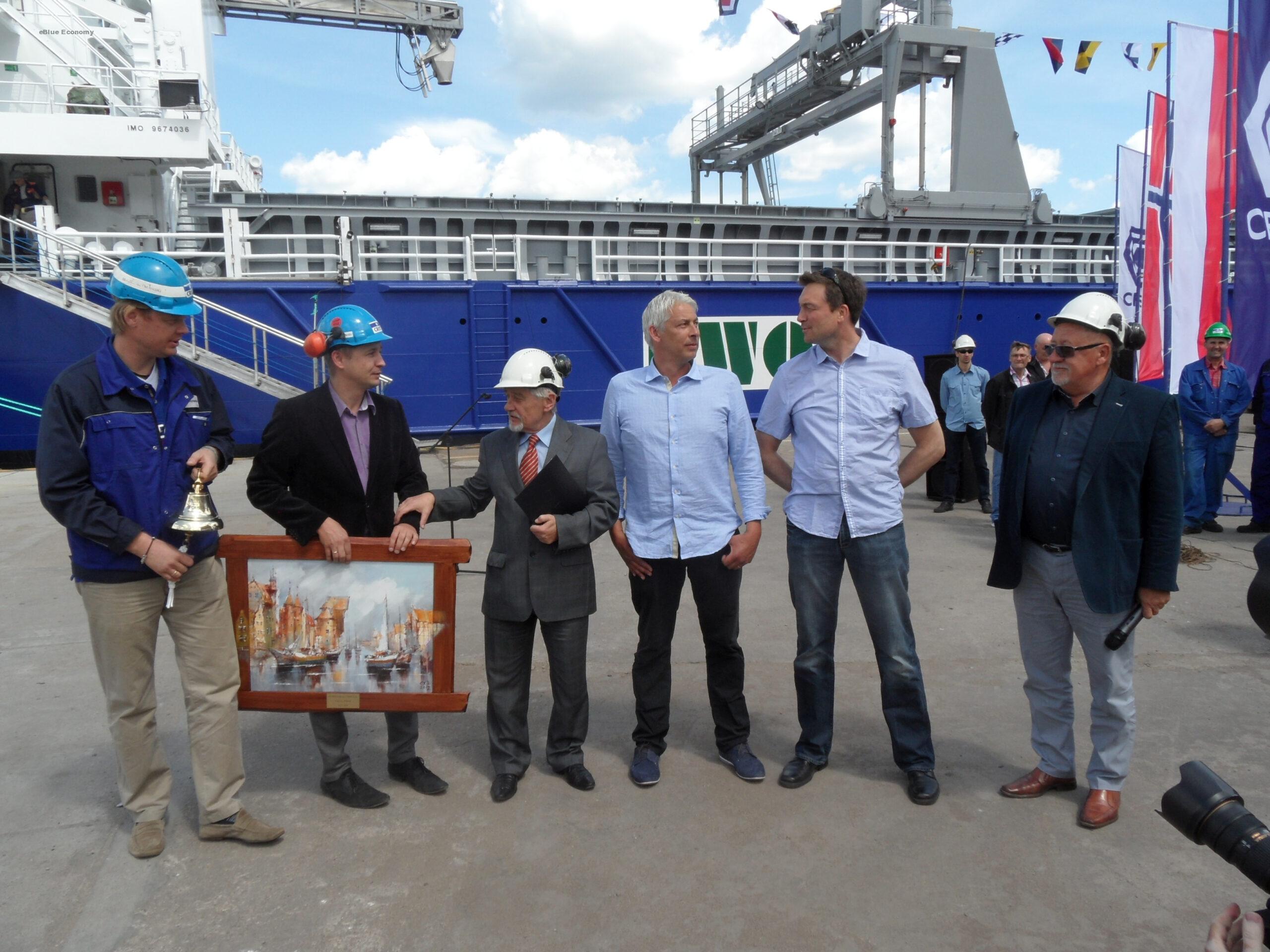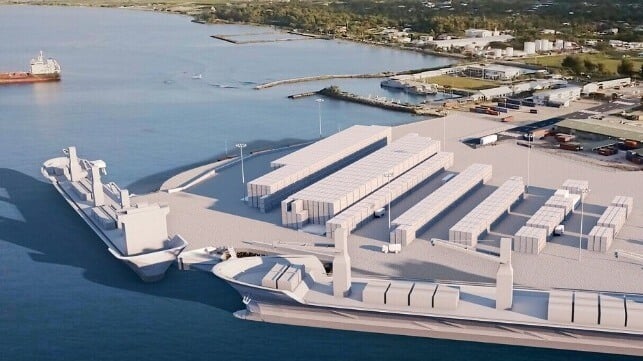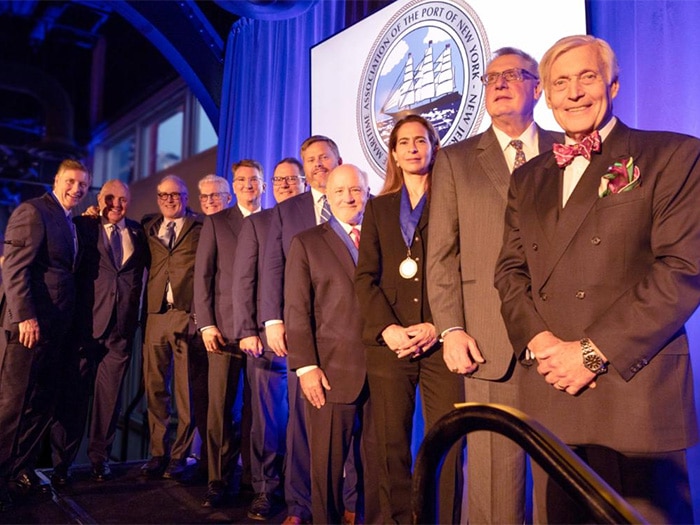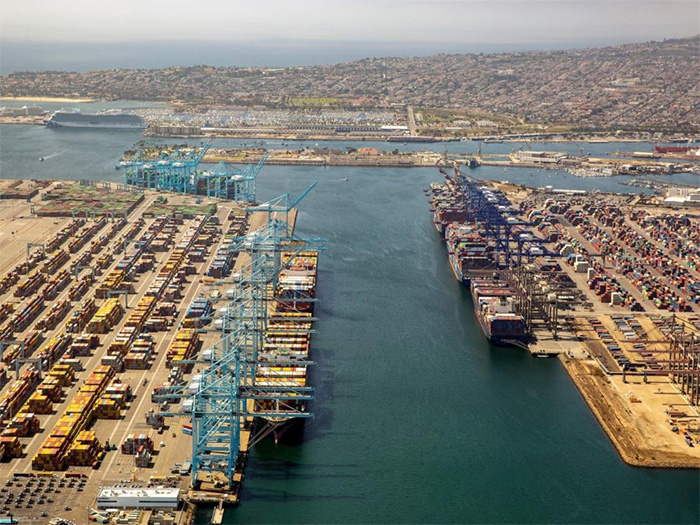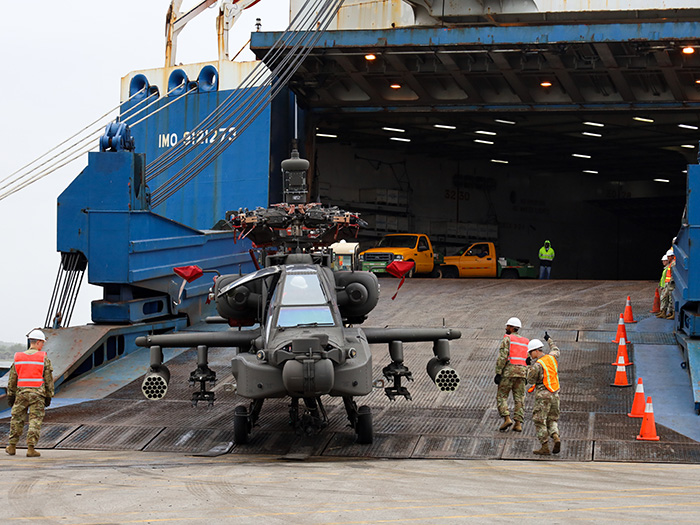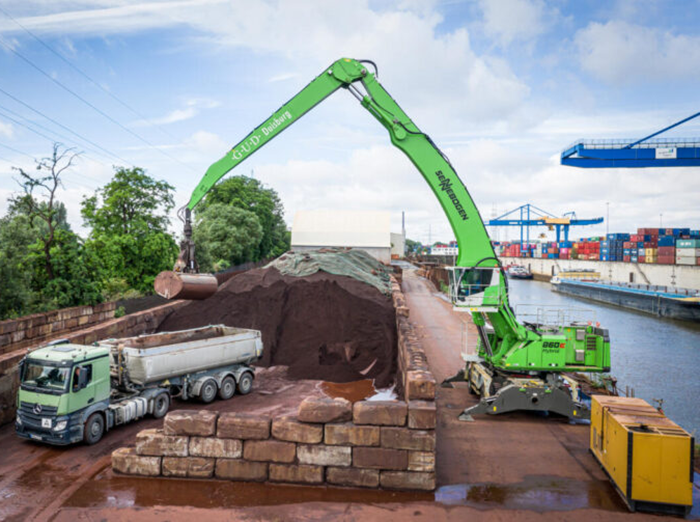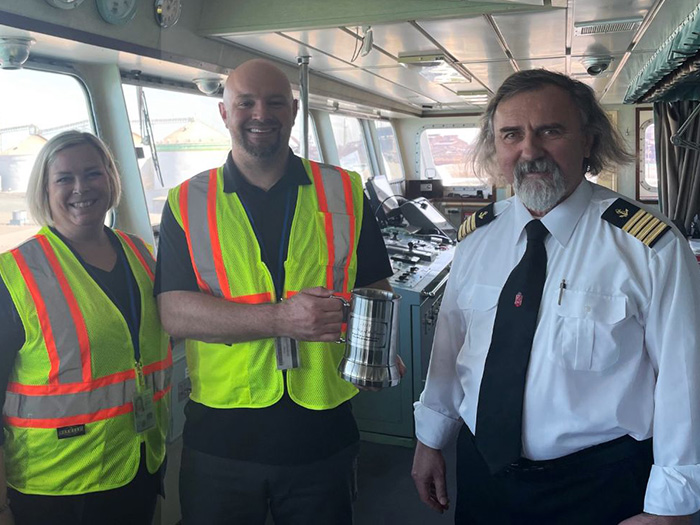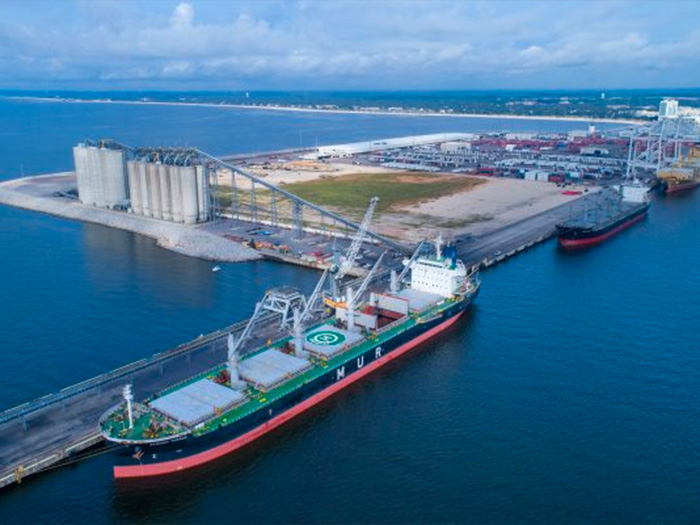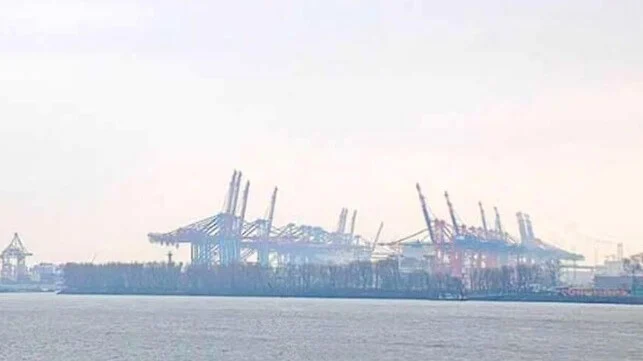
By: Marek Grzybowski
GALATEA is one of Neptune’s satellites. He was named after a sea nymph known from Greek mythology. We can admire her beauty in Villa Farnesina (Chigi) in Rome on a fresco by Raphael Santi.
The Baltic Sea and Space Cluster was invited to the project by Pôle Mer Méditerranée and Aerospace Valley from France. They appreciated the strong brand of the Cluster on the market of the Baltic Region and Central Europe. The activity of the Cluster members on international markets and in regional projects, participation in the development of innovation, knowledge transfer and commercialization of research, gained special recognition from the partners of the GALATEA project.

eBlue_economy
GALATEA is a continuation of the „NEPTUNE, INNOSUP-1, Blue Growth Accelerator” project. Both projects are financed from the Horizon 2020 program. Neptune initiated the first major wave of innovation in the European Union’s “blue economy”. It has achieved significant results in supporting small and medium-sized enterprises (SMEs) producing innovative products and services. Neptune accelerated the process of successfully implementing innovation in EU maritime industries.
During the project, cooperation in cross-border arrangements was developed and new value chains were created. Small and medium-sized EU companies related to the maritime economy, thanks to the funds obtained from Horizon 2020, could exist on a transnational scale. Importantly, small businesses were supported in introducing innovative products and services to the international market. At the conference summarizing the project in Brussels, the participants found out about i.

eBlue_economy_GALATEA
Representatives of 74 small and medium-sized enterprises and 4 large, as well as 10 clusters and 7 associations participated in the conference. The success of “Neptune” interested as many as 14 representatives of EU governments and offices. “Clusters bring significant added value to projects by actually supporting innovative small and medium-sized companies,” said Anna Sobczak from the European Commission, Policy Officer for Clusters and Emerging Industries at DG GROW at the conference.
She emphasized that a particularly useful mechanism for supporting these companies is the cascade financing system adopted in INNOSUP-1 projects, which are part of Horizon 2020 (more info in: http://www.neptune-project.eu/).

The GALATEA project (https://galateaproject.eu/) works using the proven solutions adopted in INNOSUP-1. Pôle Mer Méditerranée and Aerospace Valley have merged clusters from 9 regions of the European Union into a strong network. These clusters were selected according to the criteria which in their regions provide a leading role in the real integration of ICT, aerospace, marine and aerospace. Experience in cascading financing of innovation development was taken into consideration.
GALATEA will receive 3.67 million euro from the European Commission’s Horizon 2020 program. 79% of this will be dedicated to direct financial support for SMEs, as well as services provided by GALATEA partners and other organized activities. Around 100 European SMEs are expected to receive support. Finance will be spent on the development of innovative products, services or processes, the development of interdisciplinary projects on a large scale or impact of innovation positioning on international markets.
Therefore, an important feature of the project is the integration of activities of strong partners from 3 sea basins: the Atlantic, the Baltic and the Mediterranean Sea, emphasize the authors of the project. The leader is the strong French Maritime Cluster Pôle Mer Méditerranée – Toulon Var Technologies.
Participating in the development of blue innovations are: Aerospace Valley (France); Corallia Clusters Initiative / Research Center Athena (Greece); Asociación Clúster de Movilidad y Logística de Euskadi (Spain); Fundació Eurecat (Spain); Catalan Water Partnership (Spain); Asociatia Cluj IT (Romania) and the Baltic Sea and Space Cluster (Poland, Baltic Sea region).
The main goal of joint activities is to create innovation and develop new intersectoral and cross-border value chains – this can be seen from the selection of partners. It will finance those SMEs that are innovative, ambitious and collaborative in the maritime, ICT, aviation and space sectors.
The GALATEA project will support the development of technological and process innovations in the following areas (https://twitter.com/galatea_project): seaports (Smart & Green Ports), ships (Smart & Green Ships), shipbuilding and ship repairing business (Smart & Green Shipyard) and control and monitoring of sea areas (maritime surveillance).
All initiatives aimed at progress in ports, shipyards and seas will therefore be financed. In this area, the Baltic Sea and Space Cluster has undoubted achievements.
A series of BSSC conferences organized in cooperation with the Space Sciences Committee of the Polish Academy of Sciences in Gdańsk, headed by prof. Edmund Wittbrodt (e.g. https://www.bssc.pl/2019/11/17/sea-and-underwater-drones-unidentified-sea-objects/) is proof of the competences of the Cluster Members.
During these conferences, representatives of business, science, start-ups and student research clubs proved that Polish companies and universities related to maritime industries have specific achievements (https://www.bssc.pl/2019/03/20/autonomous-ships -bssc-pas-Gdansk-tu-conference /). The result of scientific activity and knowledge transfer is the book “Per Mare ad Astra. Space Technology, Governence and Law ”published by the Polish Academy of Sciences.
Technical, organizational, economic and legal aspects related to the integration of knowledge in the field of marine and space technologies are discussed in the book. Maritime and space technologies have been in the Cluster’s activity for many years.
The Baltic Sea and Space Cluster maintains a strong position on the market thanks to the activity of business members, universities and research institutes.
The activities of the Cluster members perfectly fit the development of Pomeranian port, offshore, shipbuilding and ICT innovations. The flagship projects of the Cluster members include the Central Port of the Port of Gdansk Authority and the Outer Port of the Port of Gdynia Authority.
The Central Port was designed by engineers from the Projmors design office, which is part of the Automatic Systems Engineering Group, a member of the Cluster. Squadron designed a seaport simulator (based on the port in Gdynia). It operates in the Pomeranian Science and Technology Park.
The Pomeranian Special Economic Zone is an invaluable partner of the Cluster in the GALATEA project. The Pomeranian Zone enables the development of maritime industries and the transfer of knowledge.
This is where the Space3ac accelerator worked effectively (https://www.strefa.gda.pl/duzy-biznes-polyka-malych-pomysly,1669,pl.html). Start-ups could design innovative solutions useful in ports and maritime transport with the financial support and consultants of the Space3ac accelerator. Space3ac partners made it possible to test innovative products in the real conditions of the ports of Gdańsk and Gdynia.
We are transferring this partnership and the experience gained from it to the Galatea project. It should be noted that we also use the experience of partners who are advanced in implementing innovation and transferring knowledge, such as the Port of Hamburg (more: https://eblueeconomy.com/marek-grzybowski-write-to-blue-economy-port-of-hamburg-course-on-smart-port/).
The port is a leader in automation in ports, the use of ICT and artificial intelligence (AI), implementation of innovations and pro-ecological solutions. It was presented at the Smart Ports BSSC conference (https://balticcluster.pl/?p=8324).
Polish shipyards and research centers have real achievements in designing and implementing innovations. Innovative ships for offshore and coastal construction as well as hybrid and electric ferries were built at Crist Shipyard.
Nauta shipyard has built research vessels, and has several dozen years of experience in ship conversion and warship repairs. Hydromega equips ships and ports with modern hydraulic systems.
The small passenger electric ship was designed by scientists from the Faculty of Ocean Engineering and Ship Technology at the Gdańsk University of Technology. A small unmanned unit was designed and built at CTO – Maritime Advanced Research Center (Gdansk). Marine Technology designed and launched the first hydrodron.
Hydrodron has been successfully tested at the Port of Gdynia (https://www.bssc.pl/2019/11/01/hydrodrons-at-the-port-of-gdynia/). The Port of Gdynia has a precise navigation system for ships. This is the first solution of this type in Europe.
Other members of the Cluster ensure the operations of companies based on advanced IT systems. Sevent offers solutions for business communication in B2B and B2C relations, data processing centers as well as communication systems and data security systems. Cador Consulting has its portfolio of modern systems for industrial product design and production process management.
These tools are based on Siemens solutions. Measurements in the waters of ports and shipyards are performed by Echogram (BSSC member) with the use of remotely controlled units. SeaData (BSSC member) monitors the state of air pollution in the ports of Gdynia and Gdańsk on an ongoing basis and creates hazard maps. YetiSense™ system is an analytical platform integrating measurements, observations, weather forecast and public data.
These are just selected activities of the Baltic Sea and Space Cluster as an organization and its members.
The first meetings with representatives of the Crist and Nauta shipyards, the Pomeranian Special Economic Zone and the ports of Gdynia and Gdańsk confirmed the advisability of the Cluster Management Board’s decision to join international projects.
The first meetings with representatives of the Crist and Nauta shipyards, Automatic Systems Engineering Group, IT companies, Cador Consulting and Sevenet, the Pomeranian Special Economic Zone and the Gdynia and Gdańsk ports representatives confirmed the advisability of the Cluster Management Board’s decision to join international projects.
The synergy of science and business resulted in new projects. This is the result of earlier activity of the Cluster members in Smart Panel projects (qualitative research and analyzes for the needs of the Entrepreneurial Discovery Process) and the Open Innovation Network, as well as the participation of Cluster members in the smart specializations of Pomerania, especially in ISP1 (Offshore and Port-Logistics Technologies) and ISP 2 ( Interactive technologies in an information-saturated environment).
Strong support from the Pomeranian Special Economic Zone guarantees that the Pomeranian region has strengthened the potential of innovation in maritime industries on an international scale.
Participation in the projects gives the members of the Baltic Sea and Space Cluster and Polish maritime industries an opportunity to participate in the transfer of knowledge, internationalization and commercialization of products and services throughout the European Union.
In the conditions of the recession caused by the COVID-19 pandemic, the participation of Polish SMEs in projects with such a scale of impact is invaluable.
The BSSC Cluster operates in four international research and application projects currently. In recent years, the Cluster, as an organization, participated in about 20 international projects. This makes the Baltic Sea and Space Cluster one of the most active Baltic organizations and research institutes, which was noticed by partners from the European Union.
Photos: Marek Grzybowski, graphics: GALATEA (https://galateaproject.eu/)


